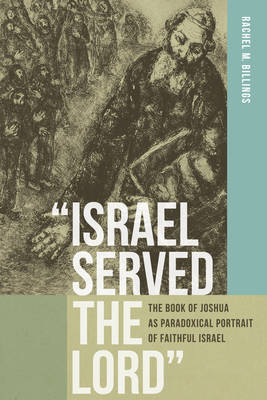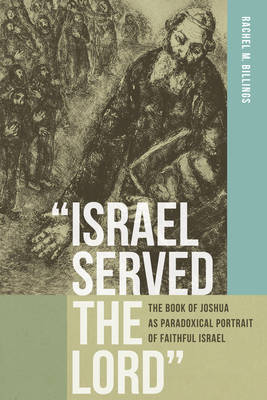
- Retrait gratuit dans votre magasin Club
- 7.000.000 titres dans notre catalogue
- Payer en toute sécurité
- Toujours un magasin près de chez vous
- Retrait gratuit dans votre magasin Club
- 7.000.0000 titres dans notre catalogue
- Payer en toute sécurité
- Toujours un magasin près de chez vous
"Israel Served the Lord"
The Book of Joshua as Paradoxical Portrait of Faithful Israel
Rachel M BillingsDescription
Two themes have dominated scholarly interpretation of the book of Joshua within the past century: the literary "discovery" of the Deuteronomistic History and the archaeological detection of evidence related to Israel's occupation of Canaan. In this newest volume in the series Reading the Scriptures, Rachel M. Billings addresses the fragmentation often brought about by these developments and offers a more holistic reading of Joshua, which joins theological sophistication with an emphasis on its meaning and purpose as a literary work.
Through a hermeneutical and literary lens, Billings analyzes the story of Rahab and Achan, the stories of the Gibeonites and the Transjordanian altar, and the theme of the completeness of Israel's taking of the land of Canaan. She argues that the way in which the book of Joshua presents these materials reminds Israel of the dynamic nature of its identity as YHWH's people--an identity that demands a continued response of obedience parallel to YHWH's ever-unfolding work on Israel's behalf. The book of Joshua portrays Israel's obedience as not merely an unattainable ideal or a thing of the past, but a living reality that unfolds when YHWH's people acknowledge His claim upon them and strive to serve Him.
Spécifications
Parties prenantes
- Auteur(s) :
- Editeur:
Contenu
- Nombre de pages :
- 188
- Langue:
- Anglais
- Collection :
Caractéristiques
- EAN:
- 9780268203542
- Date de parution :
- 30-11-21
- Format:
- Livre relié
- Format numérique:
- Genaaid
- Dimensions :
- 152 mm x 229 mm
- Poids :
- 426 g

Les avis
Nous publions uniquement les avis qui respectent les conditions requises. Consultez nos conditions pour les avis.






